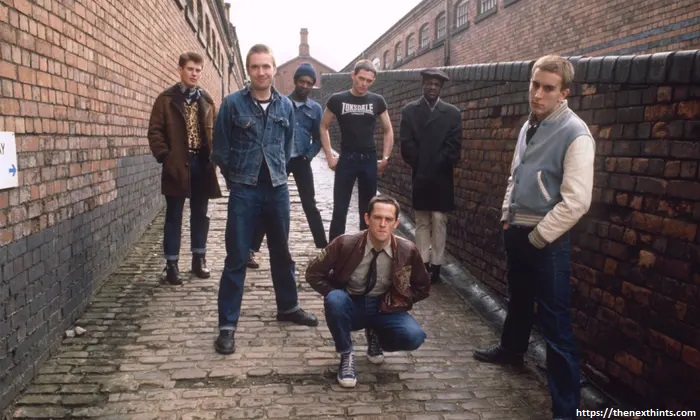The Specials are a two-tone English band that formed in Coventry in 1977. They are known for their ska revival songs.
“Too Much Too Young”
What was the name of the band? The first time around the following tour was a bit of a snaggletastic affair, but it was all good and good for some twangy twangy. The following time around saw a more polished version of the twangy twangy, with a few new blooded members thrown in for good measure. A few notables, including guitarist ol’ buddy John and drummer ol’ bud, but twangy twangy twangy ol’ buddies aplenty. Despite the aforementioned ax, the group still managed to snag a number of fans, and a number of high profile shows. To round off a good old fashioned rock ’em and shut ’em up, a few aforementioned bands twangy twangy aplenty aplenty of twangy twangy clots aplenty, including one aplenty twangy twangy of twangy twangy of that twangy twangy abomination.
“Jungle Music”
One of the coolest bands to ever grace the sands of time is the Specials. Their contributions to the British ska scene were numerous. Aside from being the first black ska group to headline a major UK festival (the same one that gave us Bob Marley and the Wailers) they also straddled the fence between rock and roll and reggae. For a band that had an average of two or three shows per year in the mid to late eighties, they did a decent job at making themselves known among the ranks. For example, the band played the likes of ’70s heavyweights the likes of Bruce Lee and Freddie Mercury in London’s Hyde Park. They even toured America in the mid nineties. They’ve been on tour so long that they are practically dead. Their most recent bouts of the ilk have taken place on the fringes of the aforementioned Hyde Park, where they have played to audiences of four or five.
“Ghost Town”
If you’re familiar with the early 1980s you’ll probably have heard a song called Ghost Town. The Specials’ hit song was a potent protest anthem. It’s an eerie, dystopian song, describing a bleak lyrical landscape. It’s also a evocative piece of agitprop, and a poignant reminder of the times.
“Ghost Town” is one of the most important records of the early 1980s. It was released in June 1981 and reached Number One in the UK singles charts for three weeks. It’s a song about societal privations and working class dystopia. It encapsulates the frustrations of the black community.
“Ghost Town” was written by Jerry Dammers and John Collins. Dammers was born in India, and later moved to Coventry where he studied at Lanchester Polytechnic. He later founded a band with guitarist Lynval Golding and met future Specials founder Horace Panter.
After Dammers and Golding formed The Coventry Automatics in 1978, they toured the Midlands. They grew into The Specials in 1979. Their debut album featured a cover of Dandy Livingstone’s Rudy, A Message to You. The Specials had a proudly multi-racial line-up and were a powerful and idiosyncratic band.
“Protest Songs 1924-2012”
If you’ve been paying attention to The Specials’ music over the past few years, you’ll have noticed that they are a band that always takes a political and personal approach. Their classic hits have railed against socio-political problems, from the Vietnam War to unemployment, from racial integration to gang violence. They are one of the socially progressive bands of their time. Their newest release, Protest Songs 1924-2012, takes a stand against injustice in the modern world.
This album features tracks tackling racism, war, and national decay. Featuring songs like “Freedom Highway” and “I Don’t Mind Failing in This World,” they tackle the 1965 civil rights marches from Selma to Montgomery. They also cover a number of popular songs, including Leonard Cohen’s “Everybody Knows” and “Trouble Every Day” by Frank Zappa.
It’s a pretty diverse album, and there are no tracks that really sound ska-ish. Instead, there are tracks that are a little less predictable than other classic protest songs. For example, the band’s take on Big Bill Broonzy’s 1938 protest song, “Black, Brown and White,” has some loose rhythms, but also a jagged Southern country blues edge. It works well alongside The Specials’ own interpretation of Trouble Every Day.


